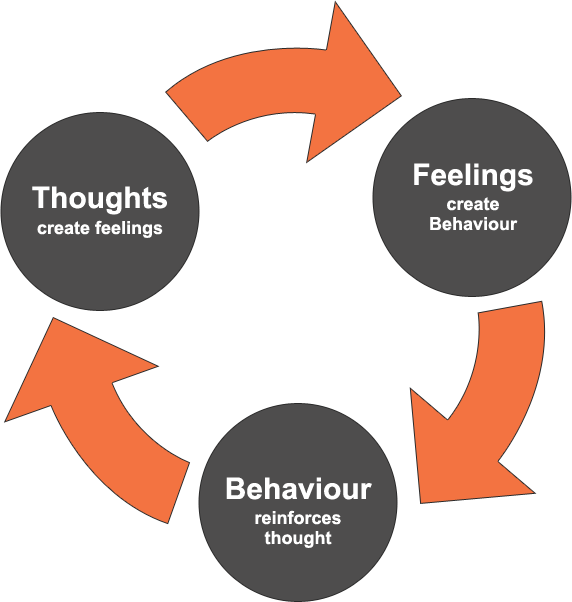Psychological Method
Psychology recognizes the common understanding of how to be happy and successful as incomplete. By studying the mind, psychology uses the scientific method to investigate the causes of thoughts/perceptions as well as the mental/perceptual consequences of our thoughts/actions.

Here are two major theories about why people are the way they are:
- Attachment Theory: the way we interacted with our parents when we were young effects how we interact in adult relationships
- Trauma Theory: Childhood trauma affects how we interact with the world as adults
These theories center around the idea that the external world affects our mental states. This is similar to the common view, although no psychologist would ever argue that external conditions guarantee happiness or success. Even people with attachment issues and trauma can benefit from the next branches of psychology that I'll talk about: interventional psychology.
Some branches of psychology investigate what interventions we can use to counteract negative states of mind and promote positive states of mind. Some examples are:
- Cognitive Behavioral Therapy
- Exposure Therapy
- Psychoanalysis
These can be summed up in a nice little infographic (usually attributed to CBT):
Psychology is broad as it encompasses basically all of the human experience. For our purposes, I want to focus on a particular branch of psychology called "Positive Psychology." A major component of Positive Psychology is a phenomena called "resilency" whereby a person who undergoes significant external trauma is able to maintain a relatively calm and stable demeanor. This concept is crucial to our understanding of how to be successful and happy because it shows that external circumstances do not, in fact, have baring over our well being. What, then, causes happiness and success?
Comments
Post a Comment